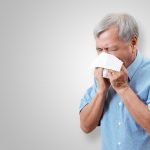
Adding cereal to a baby’s bottle is a habit that’s been around for a long time to help introduce solid foods while also supplementing a mom’s breast milk. But this practice can cause babies to pack on some pounds early in life, however, a new study says. Infants were about 50% more likely to experience rapid weight gain if they were fed milk cereal drinks during their first year, according to results published Dec. 18 in the journal Acta Paediatrica. “Milk cereal drinks were associated with early rapid weight gain,” concluded the research team led by Annelie Lindholm, a lecturer with the Halmstad University School of Health and Welfare in Sweden. However, milk cereal drinks didn’t necessarily translate into childhood obesity. Milk cereal drinks on their own were not associated with higher BMI or waist-to-height ratio by the time a child was 6, results show. But overall early rapid weight gain was associated with childhood obesity, doubling a child’s risk of high BMI by age 6, results showed. More research is needed to tease out the risks of both milk cereal drinks and rapid infant weight gain, researchers said. “Despite the cross-sectional associations between early rapid weight gain and milk cereal drink consumption, this study could not demonstrate a long-term detrimental association between milk cereal drinks and adiposity later in childhood,” researchers concluded. ”Early rapid… read on > read on >


















